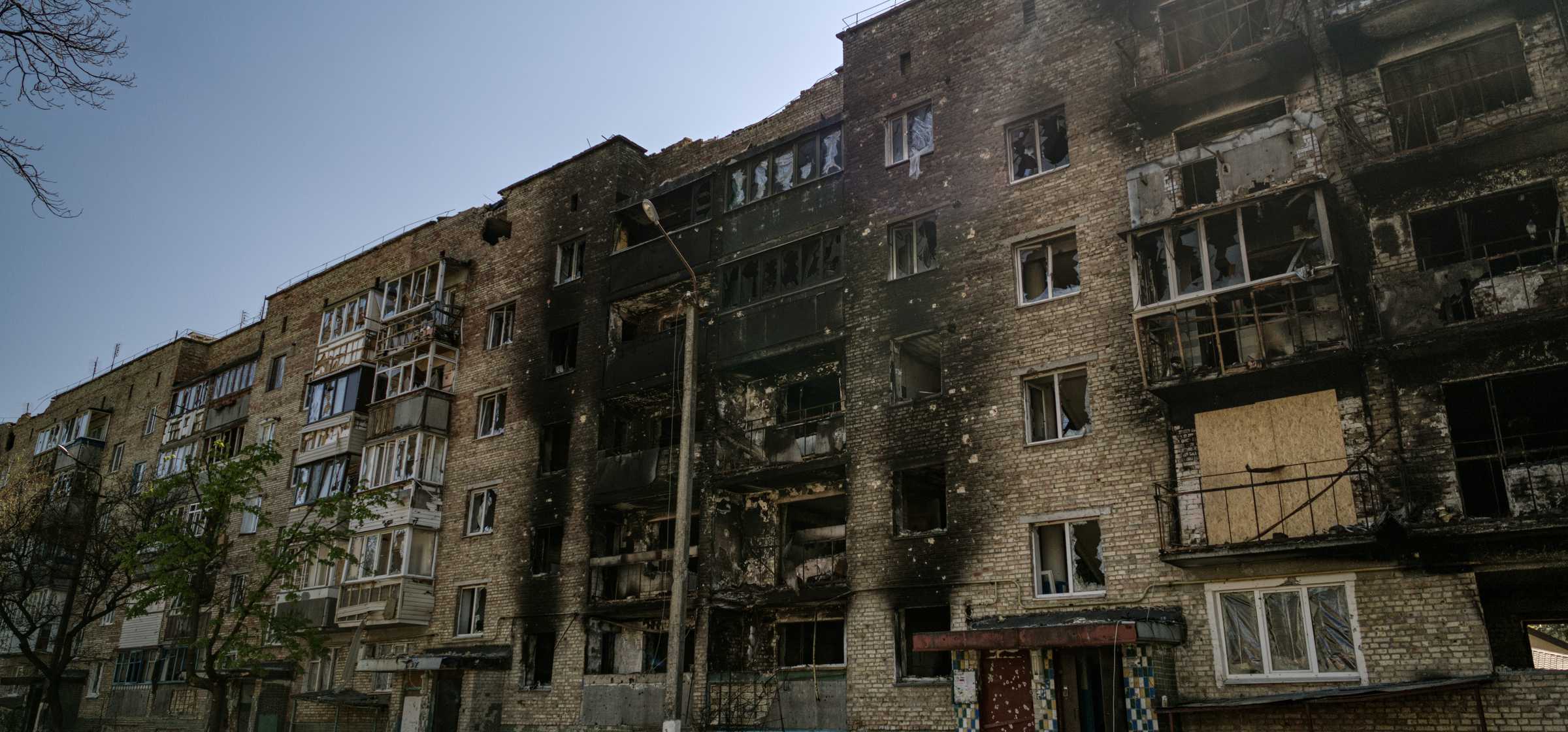RE:ACT’s Director of Operations, Ben Lampard, reflects on his recent visit to Dnipro in Eastern Ukraine.

Posted by Ben Lampard 29th June 2022 Stories
Estimated Reading Time: 3 mins
The most important message to convey after my latest visit to Ukraine is that the country and its people need our help and will continue to need it for some time to come.
Without doubt there is a massive unmet need for food, water, sanitation, and health, particularly of course on the front lines and the areas bordering them.
This is a remarkable country, and I’ve quickly come to realise it’s populated by incredibly tough and resourceful people, but they simply cannot continue to function without outside support.
That’s why I believe RE:ACT should continue to do what it does best. Investing in local solutions, with teams of our expert volunteers working alongside our Ukrainian partners and reinforcing functioning supply chains that are reaching beyond the major towns and cities.
There are so many contradictions here too.
In both Dnipro and Lviv, the high streets are busy. The cafes bustle with life, and children play happily in the parks, their delighted shouts and screams of excitement echoing far and wide.
Remarkably, when you consider what is happening all around, the trains still run and with a degree of efficiency you would not expect from a nation at war.
Even the train that takes a gruelling 19 hours to travel from Dnipro in the East to Lviv in the West was only a few minutes late! Pretty impressive when you consider our flight from the UK was delayed by more than an hour!
But it’s at the big city stations that you begin to see how this great nation has suffered since February. On the platforms, scenes not unlike those we’ve all seen of wartime Britain played out in front of me, with people saying tearful farewells to loved ones as they headed back to the frontline.
Military and armed police patrol the streets, there are night-time curfews, air raid sirens blare in the early hours, and what I suppose are the modern-day equivalent of those old WW2 Vera Lynn numbers play constantly in the cafes and bars.
The appalling suffering that the people of Ukraine have endured is brought home to me during a meeting with Mariana, the CEO of one of RE:ACT’s partner organisations, the Ukrainian Education Platform.
Mariana is the mother of two young children and had recently been given the dreadful news that her husband had been killed in the fighting in the East. Yet despite this awful loss, she was still at work, committed to helping those most in need, and pushing to find solutions in adversity.
Even with the heroic efforts of people like Mariana, it does now seem that the Russians, by focusing their might in the East, are gaining the upper hand. Military analysts believe they will be hard to stop. Sanctions appear to be having a minimal effect.
As we all know by now, the conflict in the world’s breadbasket is having an ever-growing impact on global food supplies, which in turn is already causing famine in the poorer parts of the world.
The grain Silos are full, and the wheat crops will soon need harvesting. A solution needs to be found quickly or the knock-on effects will be catastrophic.
But while the Global powers wrestle with these complex issues, organisations such as ours are now essential to the day-to-day survival of the Ukrainian people. What we are doing really matters.
RE:ACT is growing fast, and the bigger we get, the more we can do. We have the skills and expertise to deal with extraordinary situations and to make things happen, but to do that, we need your continued support.
With our extraordinarily low overheads, we can guarantee that your money will go to where it’s needed most.
Helping the most vulnerable in the most difficult situations.
Photo credit: Roman Skorobagatko. War damage in Irpin, Northern Ukraine.
